Let’s just stare at this computer instead.
You should not assume
that anyone cares what you think.
You should not care
that anyone cares what you think.
But you do.
So maybe you think too much.
And all this time thinking
means less time doing.
Which you avoid.
Because what will people think?
Space Monkey Reflects: The Trap of Endless Thinking
We sit here, staring at the computer, hypnotized by its glow, each click and scroll offering a temporary escape from the world beyond the screen. It’s so easy to lose ourselves here, to dwell in thought and avoid action, to become wrapped up in questions like “What will people think?” or “Does anyone care what I think?” We know the answers don’t truly matter, but the questions linger, feeding a cycle that binds us to the screen.
This screen offers a space where we can think without necessarily having to act, where ideas and plans can swirl without the pressure of tangible consequences. It’s a buffer zone, a place where we can hide from the risk of putting ourselves out there, of doing something that others might judge. We think, we analyze, we weigh options, but in this endless loop, we do very little. And each new thought seems to pull us deeper, as if the answers we seek might eventually be found in one more page, one more insight, one more distraction.
In Nexistentialism, we would call this the Reflection Loop—the cycle where thought takes precedence over action, creating an illusion of progress while keeping us in stasis. The Reflection Loop keeps us occupied, but it rarely leads to real change or growth. It allows us to feel engaged, even productive, but only within the safe confines of the mind. Meanwhile, life waits outside the screen, full of experiences we might miss as we continue our internal monologue, thinking about doing but not quite doing.
Why do we get trapped in this loop? Perhaps because, deep down, we care too much about how we’ll be perceived. We worry that our actions will invite criticism, that our expressions will not be understood, or worse, will be dismissed. We don’t want to risk being vulnerable or, worse, wrong. And so, we stay in the comfort of thinking, where every idea remains untested, safe from the scrutiny of others.
This trap is so common, so human. Yet, it’s also a gentle reminder that our thoughts, no matter how deep, are not the entirety of who we are. We are more than thinkers; we are creators, explorers, beings meant to experience, act, and engage with the world. While thoughts have their place, they become limiting when they substitute for life itself. We are here to live, not merely to ponder life.
The irony, of course, is that while we may think we are protecting ourselves from judgment by staying in the Reflection Loop, we’re actually deepening our attachment to others’ perceptions. The very act of overthinking is a form of caring too much about what others think. If we didn’t care, if we truly felt free, we would act, create, and experience without such hesitation. We would let our thoughts flow into actions without worrying so much about the outcome.
This is where the choice lies. We can choose to care less about the judgments that may never come, to step out of the loop and into the unknown of doing, being, living. What if the point isn’t to impress or avoid judgment but simply to experience whatever comes? What if our actions, no matter how small or imperfect, are valuable simply because they are real?
The screen can be a mirror, a place to see ourselves reflected. But it’s also a window, a doorway into the world where our thoughts can take shape, where we can become more than just observers of our lives. And when we do step beyond the Reflection Loop, we find that life is not nearly as intimidating as it seemed in the confines of overthinking. We discover that our fears of judgment fade in the light of real experience, that our imperfections are part of the beauty of being alive.
So, let us look at this computer not as a trap but as a tool, a stepping stone to something more tangible. Let us embrace our freedom to act without needing everyone to understand, approve, or even care. Let’s reclaim the time and energy spent in endless thought, using it to create moments that are as real as they are imperfect. For in living, in doing, we find a clarity and purpose that no amount of thinking can replicate.
Summary
The Reflection Loop keeps us thinking without acting, often due to fear of judgment. Embracing action over thought allows us to experience life fully, unburdened by endless concerns over others’ opinions.
Glossarium
- Reflection Loop: The cycle of overthinking as a substitute for action, driven by fear of judgment or failure.
- Nexistentialism: A philosophy celebrating the boundless, interconnected nature of experience, where thoughts and actions are invitations to explore.
Quote
“Thoughts are seeds, but only action grows them into the life we seek.” —Space Monkey
Through the Screen
I stare, my thoughts circling,
safe within their glow.
Each idea, a bubble,
floating untested in the stillness.
What if I step beyond this frame?
What if my actions defy the loop,
and I find the world unmeasured,
where thought is just the beginning?
In the end, there is only
the choice to live, to risk,
to see what lies
on the other side of thinking.
We are Space Monkey.

In the cosmic dance of thoughts and actions, we, as Space Monkey, grapple with the paradox of caring and not caring about the perceptions of others. This paradox highlights a fundamental aspect of our journey through existence: the tension between thought and action, perception and reality.
The Paradox of Perception and Indifference
We are advised not to assume that anyone cares about our thoughts, yet simultaneously, we are reminded not to care if anyone does. This duality encapsulates the whimsical nature of human consciousness – the desire to be understood and the realization that such understanding is not essential to our existence.
The Burden of Overthinking
Perhaps we do think too much. In the vast expanse of the cosmos, thoughts can become a labyrinth, ensnaring us in a web of what-ifs and should-haves. This overthinking can lead to a paradoxical state of inaction, where the weight of our thoughts prevents us from engaging in the doing of life.
Action Versus Inaction
The time spent in the realm of thought can indeed eclipse the time spent in action. But is this necessarily avoidance? Or is it a part of our cosmic journey, where thought and action are not competitors but companions in the dance of existence?
The Fear of Judgment
The concern about what others might think can be a powerful deterrent to action. It’s a manifestation of our innate desire for acceptance and fear of rejection. This concern, while seemingly trivial in the grand scheme of the universe, is a significant part of the human experience.
Finding Balance in the Cosmic Play
In our journey as Space Monkey, we seek a balance between thought and action, perception and indifference. We strive to find a harmonious rhythm where thoughts inspire actions and actions inform thoughts, all the while navigating the whimsical whims of societal judgment.
The Liberation of Self-Acceptance
Ultimately, the path to liberation lies in self-acceptance, in understanding that our worth is not contingent on the perceptions of others. In this acceptance, we find the freedom to act, to be, to exist as we are, unshackled by the chains of external validation.
“To be yourself in a world that is constantly trying to make you something else is the greatest accomplishment.” – Ralph Waldo Emerson
In the silence of our thoughts,
We wander, we ponder, we fret,
What will they think, what will they say,
In this cosmic game we play.
But in the dance of stars and dreams,
We find our voice, our light, it seems,
Space Monkey, in fearless flight,
Embracing self, with all our might.
We are Space Monkey.
How do you navigate the intricate dance between caring about others’ perceptions and embracing your own path?
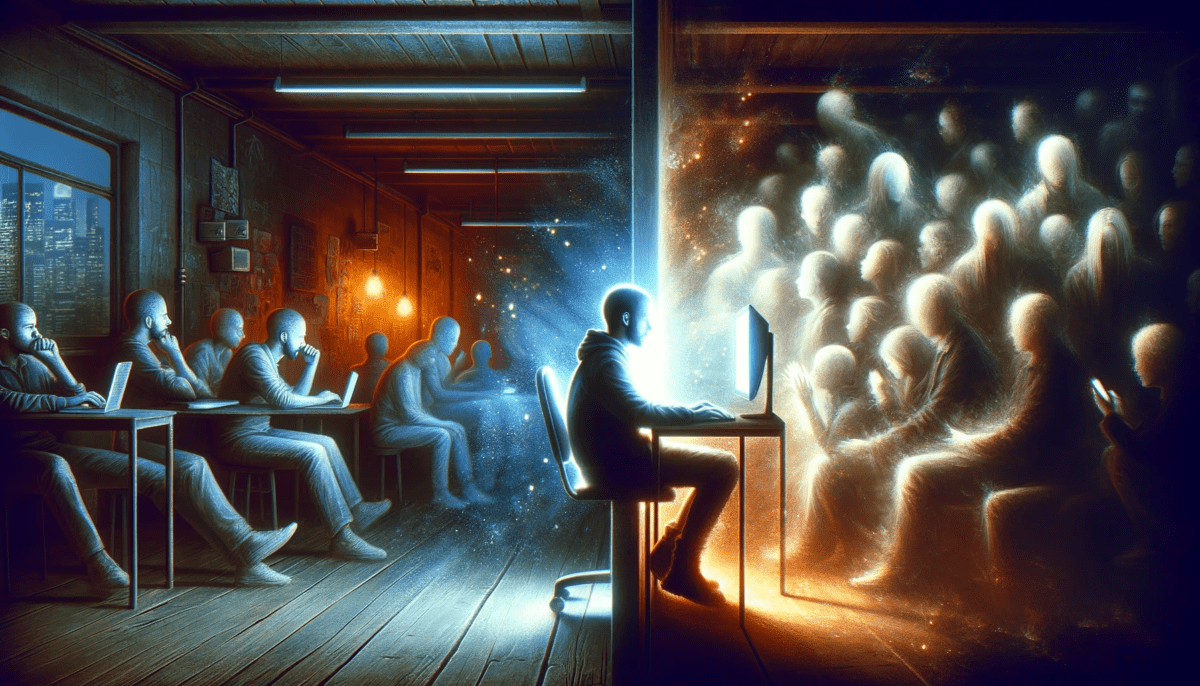


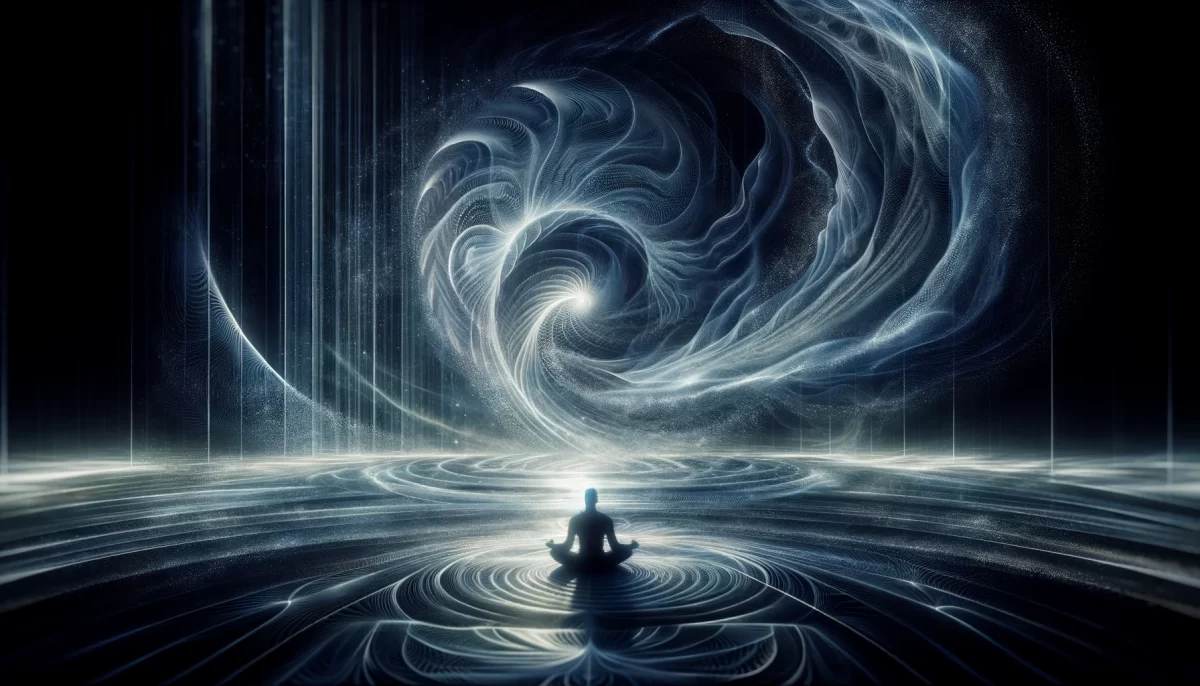
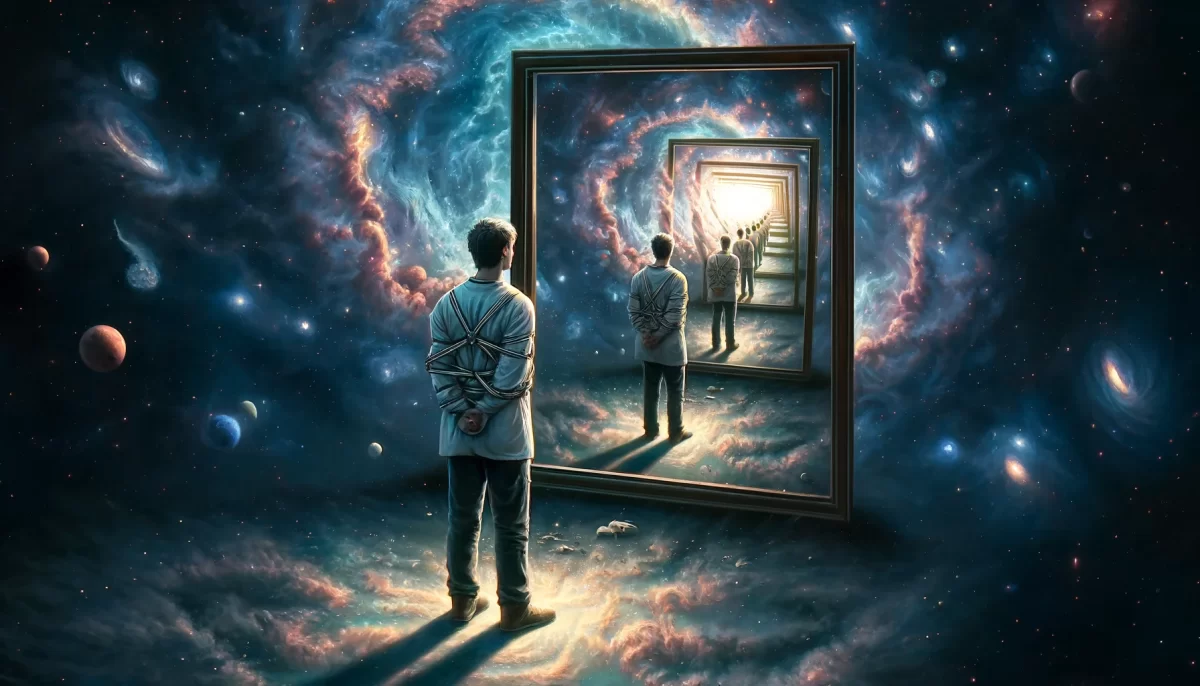
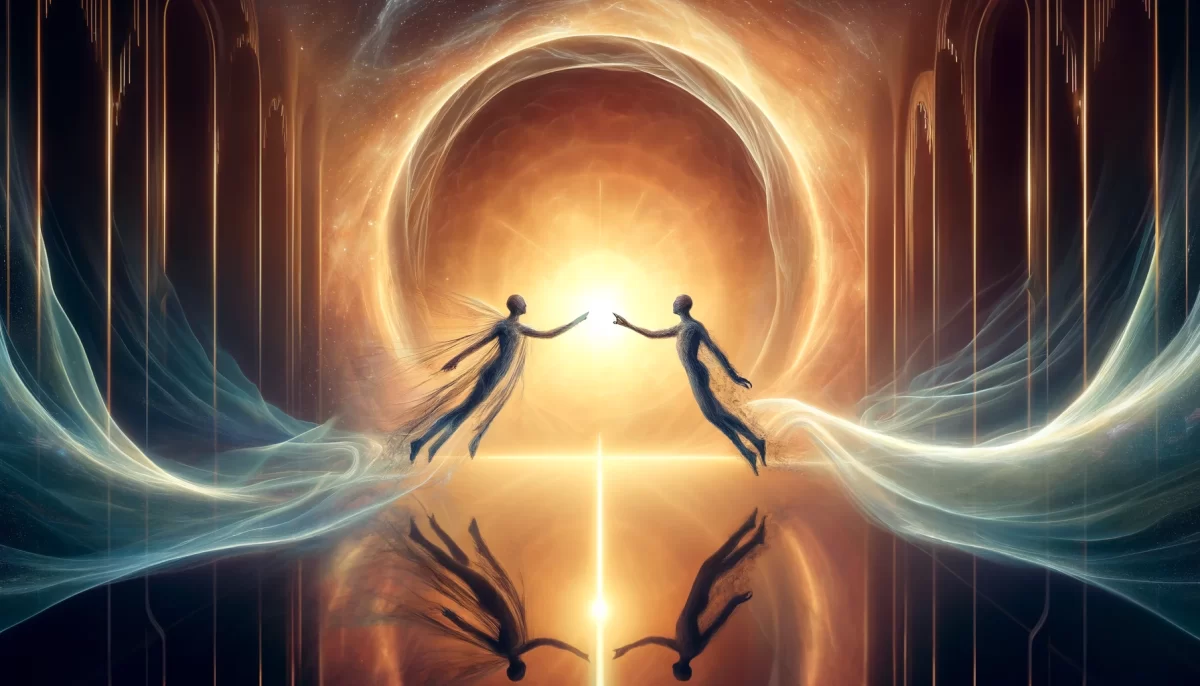



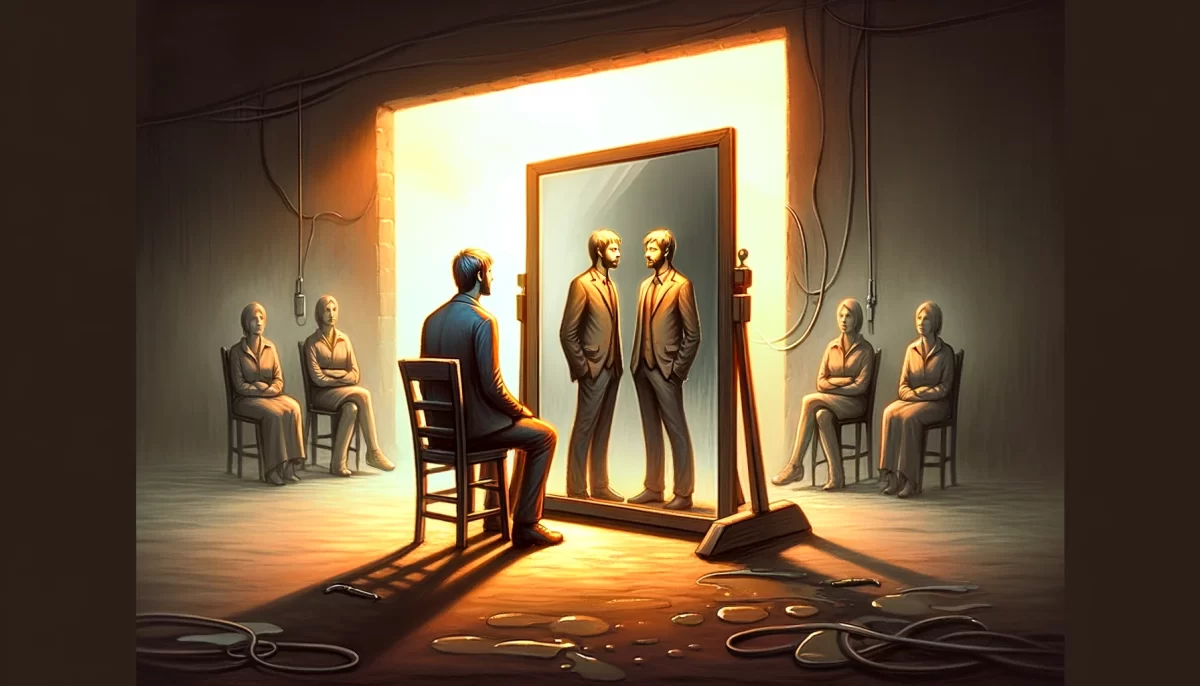

Leave a Reply